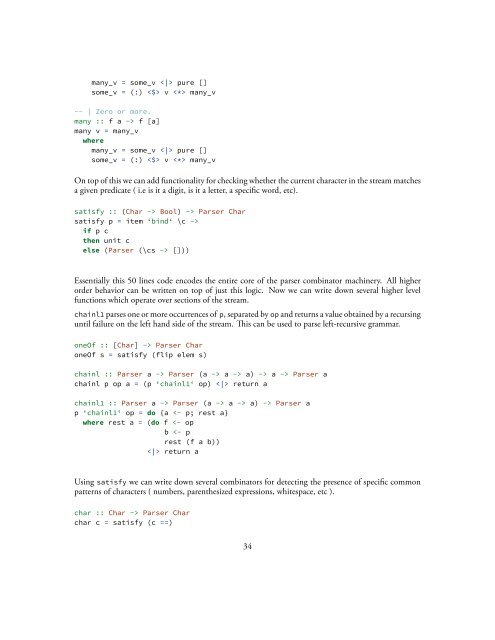You also want an ePaper? Increase the reach of your titles
YUMPU automatically turns print PDFs into web optimized ePapers that Google loves.
many_v = some_v pure []<br />
some_v = (:) v many_v<br />
-- | Zero or more.<br />
many :: f a -> f [a]<br />
many v = many_v<br />
where<br />
many_v = some_v pure []<br />
some_v = (:) v many_v<br />
On top of this we can add functionality for checking whether the current character in the stream matches<br />
a given predicate ( i.e is it a digit, is it a letter, a specific word, etc).<br />
satisfy :: (Char -> Bool) -> Parser Char<br />
satisfy p = item ‘bind‘ \c -><br />
if p c<br />
then unit c<br />
else (Parser (\cs -> []))<br />
Essentially this 50 lines code encodes the entire core of the parser combinator machinery. All higher<br />
order behavior can be written on top of just this logic. Now we can write down several higher level<br />
functions which operate over sections of the stream.<br />
chainl1 parses one or more occurrences of p, separated by op and returns a value obtained by a recursing<br />
until failure on the left hand side of the stream. is can be used to parse left-recursive grammar.<br />
oneOf :: [Char] -> Parser Char<br />
oneOf s = satisfy (flip elem s)<br />
chainl :: Parser a -> Parser (a -> a -> a) -> a -> Parser a<br />
chainl p op a = (p ‘chainl1‘ op) return a<br />
chainl1 :: Parser a -> Parser (a -> a -> a) -> Parser a<br />
p ‘chainl1‘ op = do {a


